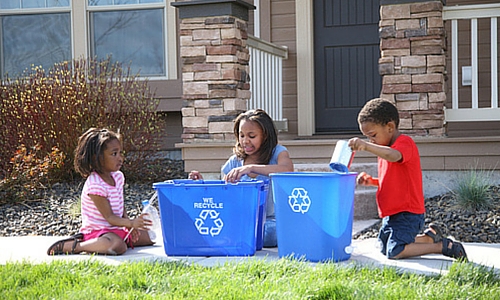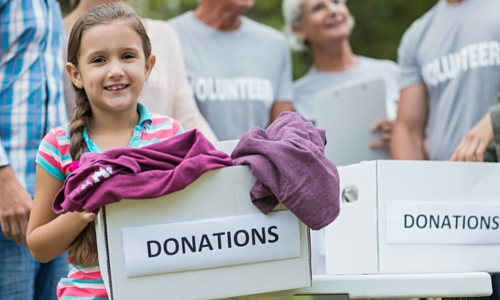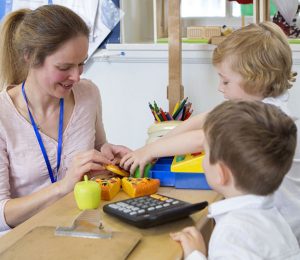The world is a big place and, if we’re going to take care of the environment, we all need to do our part. As a parent, you often have the added task of ensuring your kids grow up with these important lessons in mind. Teaching eco-responsibility to kids will help ensure the next generation grows up aware of the issues and prepared to help.
It’s never too early to teach kids what might be left out at school, but at what age will they understand? When is the right time to help children appreciate more complicated issues such as responsibility and communal actions?
Gradual learning: How young is too young?
Children are eager to learn, but younger kids often struggle with more complex ideas. Some parents might opt to leave it all until a later point in development; however, it’s often better to establish a gradual sense of learning. This way, you’re constantly building on previous ideas and, perhaps more importantly, it becomes an ever-present part of your child’s life. Otherwise, they might just see it as something their parents enforce once in a while.
If you make eco-responsibility a part of their everyday life, it becomes important to them and will be part of who they are as they grow up.
Young kids and simple rewards
At the early stages of development, children often lack motivation without direct rewards. At this point, you could try looking for simple goals you want your kids to enact. These can include:
- Being nice to others and sharing items.
- Cleaning up after themselves.
- Putting things in the correct recycling box.
- Not wasting food or other expensive materials.
When kids are in the early years of school – or earlier – complicated notions, such as global warming, are just too much for them to really grasp. Your kid might not understand why using environmentally-friendly cleaning agents is an important task, but rewarding this behavior will nonetheless encourage them to do so.
Also, kids are taught (by you, their daycare, or pre-school) right from wrong at a young age and can tell good behaviour from bad behaviour as early as 2 years old. So even a general understanding of what is bad for the environment, or what “hurts the earth” can help instill eco-responsibility from a young age.
The rewards themselves can be pretty simple. They can range from a gold star on the wall, a favourite snack, or even a little pocket money. The main goal is to offer some form of physical reward to ensure their motivation during their early years. In later years, this acceptance of sharing will help them avoid selfish vices and allow them to integrate within different communities.
If you need a little help explaining things to young kids, try showing them a video, like this one on Climage Change, or this one about Recycling, read some earth-friendly books, or make some fun crafts from recycled materials. There are also some great movies, such as The Lorax, and Wall-E that introduce basic concepts of environmental responsibility and can encourage discussion between you and your kids.

Tweens and additional duties
As children get older, you can often assign them more complicated tasks. For instance, wiping counters down, sorting the recycling, or taking out the compost make for simple chores than don’t take long. Whether it’s a gold star or more pocket money, a quick reward can ensure these tasks get done as routine.
At this stage, you can also try introducing preventive measures. Perhaps, there wouldn’t be so much cleaning to do if people were not careless with food or other items. Again, simple rewards can be used to give a positive impact on good behavior – a simple gesture that will likely last as your children grow older. It also helps foster the beginnings of a sense of environmental duty or care.
Teenagers and taking charge
Finally, when your children become teenagers, they often begin to think for themselves. If you’ve spent a little time helping them take on tasks around the house, then you can begin to help them lead the way.
For instance, consider taking your kids shopping with you. If children are involved with running the house, they become aware of the products and the criteria you are essentially trying to meet. By taking them to the grocery store, you can introduce new additional values, such as:
- Cost: How much does this cost and is it the most efficient option?
- Environmental impact: What are products made of and how does this affect the planet?
- Necessity: Do you always need something or are you buying redundant products?
Even at this stage, you can often use simple rewards to encourage children. Cost, for instance, is an obvious example. Any money saved can be used elsewhere as motivation or rewards.
Similarly, other shopping items can also be used as encouragement. If you have your teenager thinking about recycling and the environmental responsibility they hold, they will often look for recyclable materials (such as glass and aluminum) in drinks and other produce. You could make it a house policy, for instance, that they only get these goods if they are recyclable.
It’s not much, but it encourages your kids to be more aware and actually look at things before buying them. Take a look at our directory of Eco-friendly Products and Services for ideas in and around Toronto.

Unique opportunities
Furthermore, you may find a chance to do more every so often and, if you think your child is up to it, you should always try to include them. If you end up redecorating, for example, your choice of flooring has a greater impact than aesthetics. Consider involving your kids in the discussion and ask them questions along the following lines:
- How practical is this material? Does it have a large carbon footprint?
- What would you need to maintain this floor? Is there a better solution?
- Is this cost effective and safe to use?
These are often big decisions and kids appreciate being included. By involving them in the decision-making process, they can also understand some of the larger consequences and choices that go on behind the scenes. They will also be able to appreciate environmentally-friendly activities when they begin to understand the impact the alternatives have.
Similar scenarios include helping neighbors with difficult tasks – this will teach children that everyone should pitch in to help humanity, be it locally or globally. If you want to take things even further, you could take the kids to volunteer at a local community clean-up or fundraiser. There are plenty of Family Volunteer Opportunities around Toronto.
In summary, there really is no one way to teach a child eco-responsibility and the importance of looking after the world around them. However, you may not want to rely solely on school to educate your kids on this important issue. As a parent, you should look for the ideal opportunities to encourage these notions at home.
Whether they are 5 years old or 15, there’s always something that can be done to involve and encourage your children to take action.
Tim Sparke is a devoted family man with a hands-on approach. When, he’s not enjoying the wonderful moments of being a husband and father, he enjoys his hobbies of writing and gardening. He practices his trade as the CEO of 4 Pumps.
READ MORE LIKE THIS:
- 7 Ideas for Earth Day Fun with Kids + Events
- 8 Helpful Tips for Teaching Kids About Money
- 10 Tips for Getting Kids Involved in Cooking and Meal Prep
Keep informed about what’s going on in Toronto and your local community in our Event Listings, and search our directory for Eco-Friendly Products and Services, and Family Volunteer Opportunities to help your family give back.
Sign up for our newsletters to get parenting and family fun articles delivered to you!



